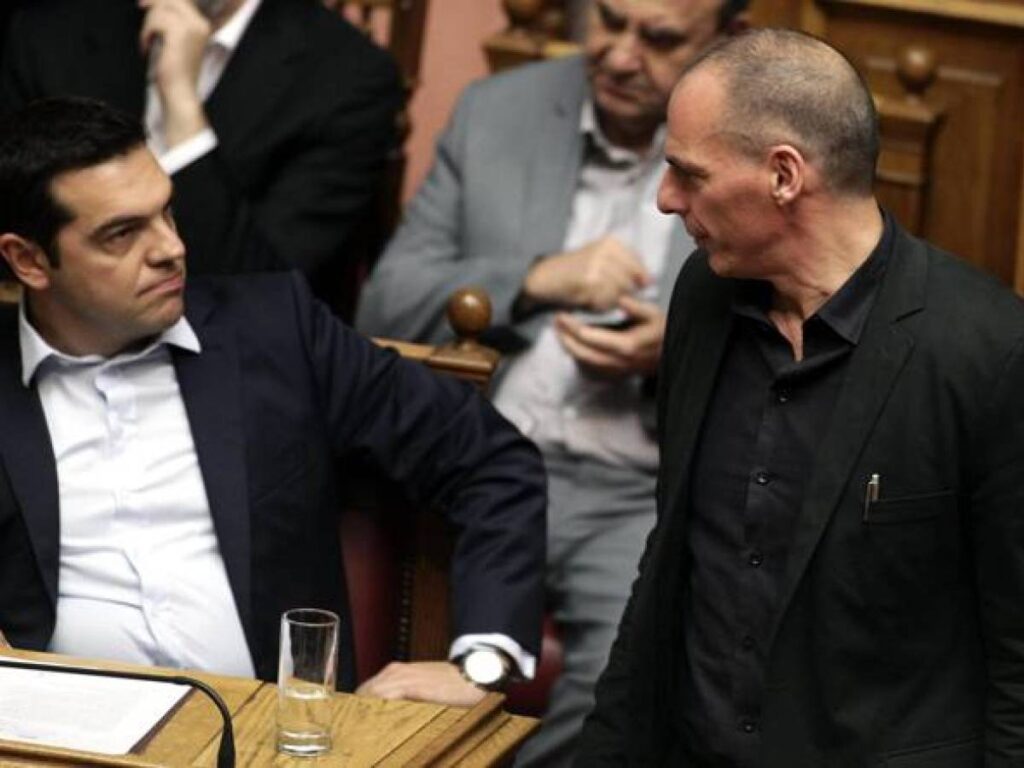
Rags fly beneath the Acropolis. Tsipras and Varoufakis, Varoufakis against Tsipras. Once friends, when they vowed to expel the troika from Athens, then separated by the resignation of an eccentric anti-system professor and today, once again, at odds. The revelations of the former Syriza prime minister, who was quickly able to have the memorandum to save Greece rewritten twice and therefore put a greater burden on Greek taxpayers, reveal extraordinary details about the personality of the economist who, a few years ago, at Fabio Fazio’s house, brought home a four-figure check for a few minutes of slogans and jokes.
According to Tsipras, Varoufakis was only interested in promoting his book. The former prime minister outlined this in his recently published memoir, entitled Ithaki, replaying a ten-year tapestry of memories and regrets, which the 51-year-old summarized thus: “Varoufakis was, in fact, more of a celebrity than an economist” and underscored how being out of the ordinary for a Finance Minister was not the best thing at the current geopolitical and financial moment. The country is practically bankrupt, it is even impossible to pay pension funds and ATMs only give 250 euros a week to each account holder. At that time, China gained the port of Piraeus to expand its Silk Road. In short, the gap is very close but at the same time there are people who are distracted by other things.
“I wanted to convey the message of tough negotiations, but I underestimated the human factor, wrote Tsipras -. Very quickly Varoufakis turned from a resource into a negative protagonist. It wasn’t just our potential allies who couldn’t stand him, not even his colleagues.”
A precise accusation accompanied by certainty: negotiations to avoid bankruptcy “were not just a way to get a better deal for the country, but an experiment, a historic opportunity to demonstrate the correctness of his economic theory.”
The Greek-Australian economist, who at the time founded the political movement Mera25, angrily rejected it all and started over by pointing the finger at the former prime minister, whom he said was guilty of calling his mistakes “naive”. At the same time he offered a bit of self-criticism regarding some of his eccentricities, such as a not-so-discreet photoshoot with his wife, and added that the “parallel payment system” he introduced, which Tsipras called “vouchers”, was in fact a cutting-edge tool at the time. He also accused his former colleague, with his policies, of paving the way for the current conservative government led by Kyriakos Mitsotakis. Regarding negotiations with the troika, Varoufakis recalled that in 2015 creditors wanted to embarrass Tsipras and that the former prime minister’s choice to appoint him as head of Finance was related to his communication skills.
He later claimed that his proposed payment system played a role in his choice and that the February 20 agreement was not a memorandum, but rather an extension that was ultimately used to sign a memorandum. Beyond accusations and malice, Greece currently has a more solid financial panorama than France. The numbers need to be understood.





